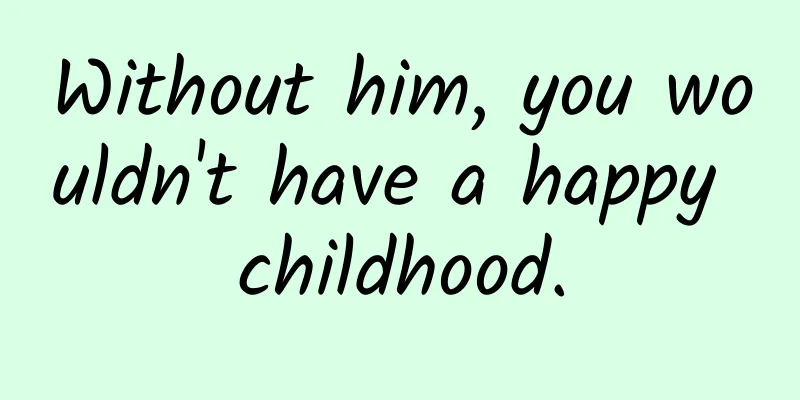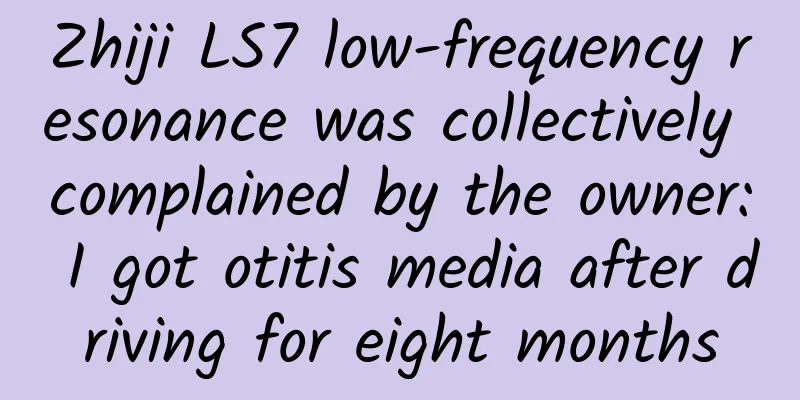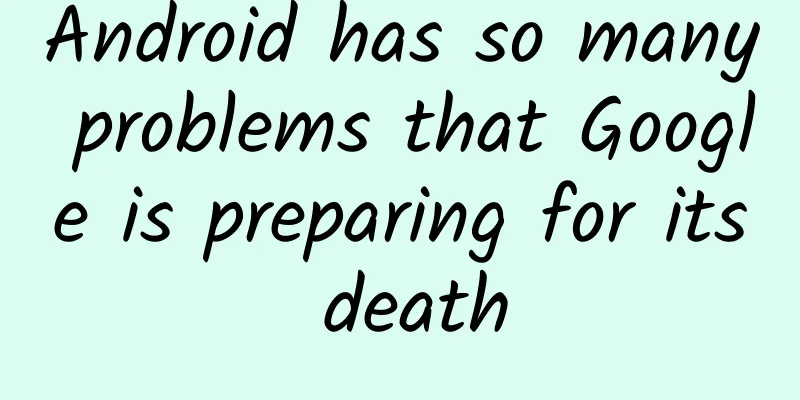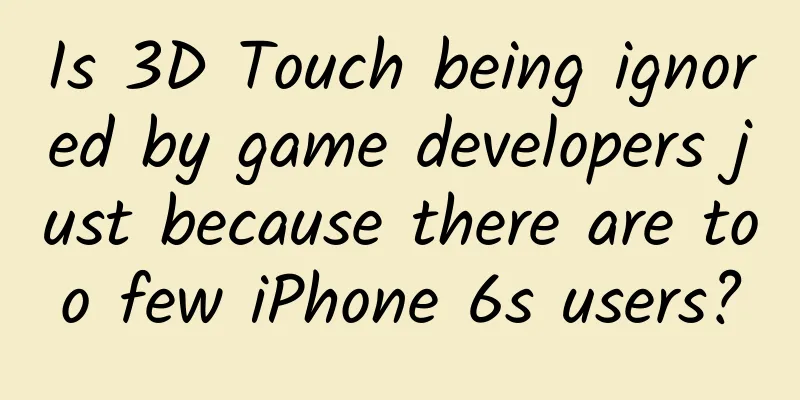When the phone rings, I get anxious instantly! Why are people more and more afraid of answering the phone?
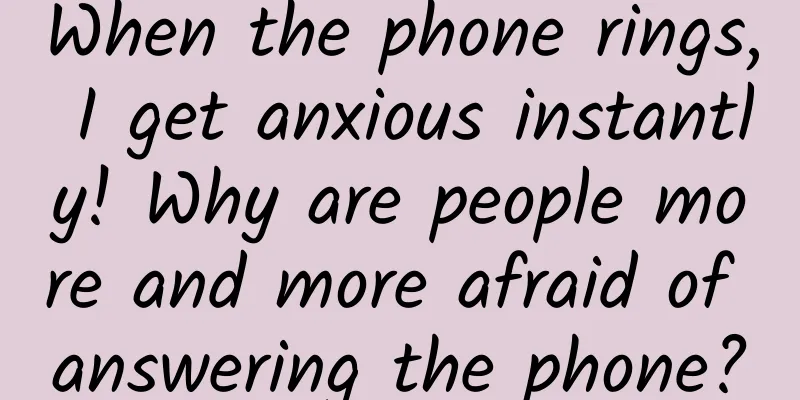
|
Leviathan notes: "If you don't do bad things during the day, you won't be afraid of ghosts knocking on your door at night" can only partially explain the origin of telephone fear. More often, what we are anxious about is the phone itself. We are anxious about the real-time nature required during a call. After all, the content in the dialog box can be deleted, modified, or added, but everyone speaks without thinking. We are anxious about not being able to guess the other party's reaction during a call. After all, in face-to-face communication we can get subtle "important information" from the other party's micro-expressions, and sometimes we are more willing to believe these rather than the content of the conversation. The first level of concern can only be dispelled by being careful with words, and the second level of concern can also be largely offset by video calls. But there is no doubt that phone anxiety is, to some extent, a "side effect" of oversensitivity and lack of self-confidence, and has become a compulsory course for people in society. Image source: Wattpad Of course, calling is one of the least important things on your phone these days—behind texting, Google, Facebook, and so on—but it’s still one thing you can’t get rid of. Even with all the apps that can save you from making a phone call, there are still times when you have to make a phone call : You can make a restaurant reservation or a doctor’s appointment online, but you still have to call when you’re running late. You can apply for a job via email, but you may still have to wait for the hellish test of a phone interview. You can post anti-Trump political rants on social media as much as you want, but it won’t do you much good if you don’t call your congressman. For some people, it's no big deal, but for others, picking up the phone is a struggle: you rehearse your words a thousand times before the call, then you dial the number with a shaky hand, and then when you hear the phone ring on the other end, your chest starts to race with panic. That’s OK! Hating phone calls doesn’t necessarily mean you have social phobia —the two are closely related, but some socially adept people have a deep-seated fear of making and receiving calls. And you’re not alone; phone anxiety is common. There’s no hard and fast data to tell us exactly how many people hate phone calls, but research suggests that more and more people are turning away from them: In 2011, a Pew Research Center survey reported that Americans with cell phones made or received an average of just over 12 calls per day that year; by 2015, a study by the Consumer Behavior Research Group told us that number had dropped to around six. Meanwhile, the internet is awash with guides for people who hate phone calls on how to call their local legislators, and Twitter is full of jokes about them: (www.pewinternet.org/2011/09/19/how-americans-use-text-messaging/) Back then, I was at a loss and called my congressman to tell him that I was also a congressman. Now, we are going to have lunch together to talk about politics and love. —vineyille (@vineyille) 2017.1.25 I once called our local councillor to talk about ACA (Association of Chartered Accountants). I was so nervous that I even called him by the wrong name. Fortunately, the person on the other end of the phone was very patient and friendly. You see, anxious brothers, we can do it! —Amelia The Oncoming Storm (@deserthooker) 2017.1.23 Most of the calls I made to my congressman today were left on voicemail. I was nervous and had no ideas when I called, and kept saying "um..." But I did call. I'll continue. —Laura Silverman (@LJSilverman1) 2017.1.31 However, at least realize that you will call for a variety of reasons, from complaining in person about the ambitious dictator who is roaring through parliament to making a dinner reservation at a restaurant that you can't find on OpenTable. The first thing you need to do to overcome your fear of calling is to understand why you have this fear in the first place. You don’t know what others are thinking You may have heard of the widely cited statistic that more than 90% of communication is done nonverbally. While the specific number here is a bit problematic, the point it makes is correct: verbal expression accounts for only a small part of our communication. And many other forms of communication—facial expressions, body language, sign language, etc.—only come into play when we are face to face. On the other hand, on the phone, “we’re only communicating with our voice,” says Alison Papadakis, a professor of clinical psychology at Johns Hopkins University who studies stress. “So that can be a little bit nerve-wracking for people.” For example, something that sounds nasty in person might be said as a joke with a smile on your face — but on a phone call, how can you know? Image source: Mrwgifs What’s more difficult isn’t just understanding what’s being said — the more challenging issue is making sure that the other person understands exactly what you’re saying. “When we’re talking to someone, we sometimes use our facial expressions to give them encouragement,” says Alexander Queen, a clinical psychologist at Tufts University who studies anxiety disorders. For example, raising an eyebrow or slightly furrowing it is a silent way of communicating that you are listening, while nodding your head indicates that you are encouraging the speaker to continue. (On the other hand, if the listener's eyes are darting, it probably means you should change the subject.) Without these cues, the conversation becomes more of a guessing game, with no way to really know if your guess is correct. (This also helps explain why a simple but strangely dreaded task can be so embarrassing and agonizing: leaving a voicemail.) Image source: Gfycat For you, time is also a kind of pressure So why is a phone call so much more terrifying than a text message for so many people? After all, those typed messages lack all those nonverbal cues. But with a text message, at least time is on your side: you have time to collect your thoughts, time to edit your words, time to rethink and edit before you hit the send button. With a phone call, you have these luxuries, and you have to respond quickly before you hang up - so every word you utter is more like a gamble in some way. " When you're on the phone, you can make small corrections or even take back what you said, but the way you do it is completely different from texting , because the words are already there, and you can't make the other person ignore them," Papadakis said. When communicating on the phone, pauses also carry more meaning. In person, you can see that the other person is thinking carefully or is distracted. But on both ends of the phone, especially for those who are prone to anxiety, every silence may mean that the conversation is going off the right track. Then there’s the fact that calling is more time-consuming than texting: The latter can be done quickly between other activities, while the former requires your full attention, or at least close to it. “Before making a phone call, people worry about whether I’m going to bother them or be annoying,” says Jeremy Jamieson, a professor of psychology at the University of Rochester who studies social stress and emotion management. With this mindset, it’s easy to view a phone call as a way for the other person to meet your needs, perhaps unwillingly. Image source: Gladiators and Heartbreakers Do you feel constantly judged when you make phone calls? You’re right, a little bit. If you’ve ever been on the phone in a public area like an office, you know how weird it can feel to be performing half a conversation in front of all your colleagues. In an in-person conversation, the pressure is partially relieved by the fact that others can hear you and pay attention to both sides of the conversation. “But if you’re on the phone, the other person can’t share the pressure,” Quinn says. “All the attention is on you because you’re the only person in front of them.” (And they’re probably actually paying attention: Research shows that “half-conversations,” or conversations where only one person is heard, attract more attention than regular conversations. ) Image source: WordPress More often, though, it’s not the people around you that trigger phone anxiety—it’s the people on the other end of the line. “We don’t like being judged. Our survival as a species in prehistoric times depends on working with other people—we’re highly social creatures—so any time we put ourselves in a situation where we’re being judged, there’s a lot of pressure on us,” Jamieson says. “It’s a bit like giving a public speech, a job interview, or any other experience where you’re judged. People always feel like they’re not going to do well in that environment.” “Someone might have the impression that they are at higher risk for anxiety when they are on the phone with someone they have a relationship with,” Papadakis said. “They worry about screwing up or upsetting their friend or partner, which could have negative consequences for their relationship. If a customer service agent starts an argument with you on the phone, that’s fine, because you’re never going to see that person again.” Image source: Giphy So when people have to call someone they are connected to, they often become more self-restrained, or more consciously tailor their words to the immediate social context. The problem, however, is that excessive self-restraint can actually make the conversation more awkward, exacerbating the anxiety and other problems that come with it. “People who are socially anxious tend to be too focused on themselves, on what they’re doing, and on making sure they’re not doing anything that’s going to embarrass the other person,” Papadakis says. “That can make the conversation more difficult — if you’re focusing on yourself and not listening to the other person’s question, it’s harder for you to answer. ” You just haven't done enough. The reason is simple and true: As your parents often complain, people these days—especially young people—really don’t talk about their phones that often anymore. “Part of the reason for phone phobia is that it’s just too infrequent,” Jamison says. “They know exactly how to text and what those emojis mean, but when it comes to making a phone call, they’re completely clueless.” Image source: Culturalbility Jamieson compares the situation to grandparents learning how to use Facebook: "It was a complete mess. They didn't know how to do it. They had no idea what was going on." Communicating in person may be more intuitive, but communicating on the phone requires a better understanding of subtle etiquette : Breaking a call into parts, and knowing how to move gracefully from the opening greeting to the next part, knowing when to pause, knowing when to get to the point, knowing how to end the conversation. It all takes practice. Image source: Tenor So, how do you overcome your fear of the phone? Unfortunately, the most effective way to overcome a fear of the phone is to hone in on it by making more calls. Think of phone calls as a form of exposure therapy—the more you do it, the less scary it becomes. Quinn suggests approaching phone calls with a technique called cognitive restructuring, or in other words, strategically thinking about them differently. For example, if you're worried that the call will deeply disturb the person, "you might want to think, 'Well, if they're really uncomfortable with the call, they don't have to answer,'" Quinn says. Or, if you're worried about saying the wrong thing on the phone, you should do your best to put the mistake into context: You're not the only person communicating with the person that day, and your mistake won't be the only slip of the tongue the person hears that day . In other words, what may seem like a world of difference to you may not be a big deal to the other person. Once you can do that, Papadakis suggests setting yourself some specific goals, like calling someone and having a five-minute online conversation (note that this shouldn't be something like "Call X, don't be nervous," because that's hard to measure objectively). The key, Papadakis explains, is to start with the smallest, simplest things and work your way up. If a casual chat about whatever comes to mind is too scary, start with a more formal, structured call and write a script for yourself before you call. You can even try saying some of the words out loud to yourself. After that, if you feel like you have everything you need to make the call, make the call. By Cari Romm Translated by Qiao Qi Proofreading/cutting light Original article/www.thecut.com/2017/02/psychologists-explain-your-phone-anxiety.html This article is based on the Creative Commons Agreement (BY-NC) and is published by Qiao Qi on Leviathan |
<<: Suffering from “spring fatigue” and feeling listless? Here are a few tips to help you cheer up!
Recommend
The modern version of Melatonin, what’s the magic behind Tanwan Blue Moon’s advertising?
Tanwan Blue Moon is definitely a typical phenomen...
100 event planning tools, how many do you know?
When you first start planning, your leader assign...
Foreign media reviews Windows 10: Seemingly compromising but actually ambitious
Microsoft recently presented its latest operating...
my country's first independently designed nuclear power plant has been generating electricity safely for 30 years
"Independent innovation is the soul of the d...
Jiangsu’s new regulations on childcare leave in 2022: When will they take effect? Does the 10-day parental leave include weekends?
Recently, Jiangsu Province issued the "Imple...
There are more than a dozen kinds of red beans, which one is the real "acacia bean"?
Author: Ye Jianfei The article comes from the Sci...
Why is software development so labor-intensive even though there are many people and little work to do?
This article is about a "strange phenomenon&...
I, a PPT designer, shut up after AI made me unable to stop
In the 2024 Spring Festival Gala, accompanied by ...
Guanghan SEO training: Explain that the ranking of a website to the homepage is inseparable from two factors: relevance and user search habits
Optimizing website keywords to the homepage throu...
Yiren's Way to Make Money - Small Secret Circle Issue 6
Yiren’s Way to Make Money·Xiaomiquan Issue 6 Resou...
Smart APP recipes, stewing and cooking functions, the Mijia Smart Electric Pressure Cooker is a kitchen artifact
"Man is iron, rice is steel, and if you don&...
iPhone without jailbreaking can prevent harassment? The actual effect is very limited
Recently, a mobile phone security software has la...
A 14-year-old student in Shandong died of anthrax infection! How contagious is it? How to prevent it? The answers are all here
Expert in this article: Dr. Tian Jing, attending ...
The similarities and differences between Web front-end development and iOS terminal development
[[125065]] language As user-oriented programs, th...
The "accomplice" that secretly raises your uric acid level is not just purine! There are also these foods you love to eat...
Summer is here, the temperature is high, and it’s...

